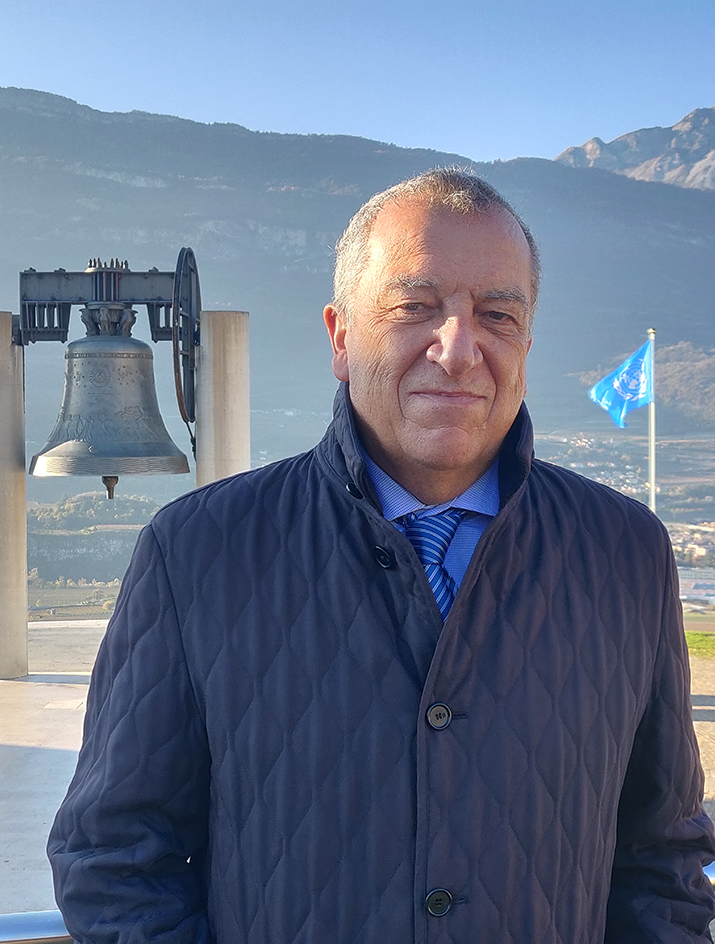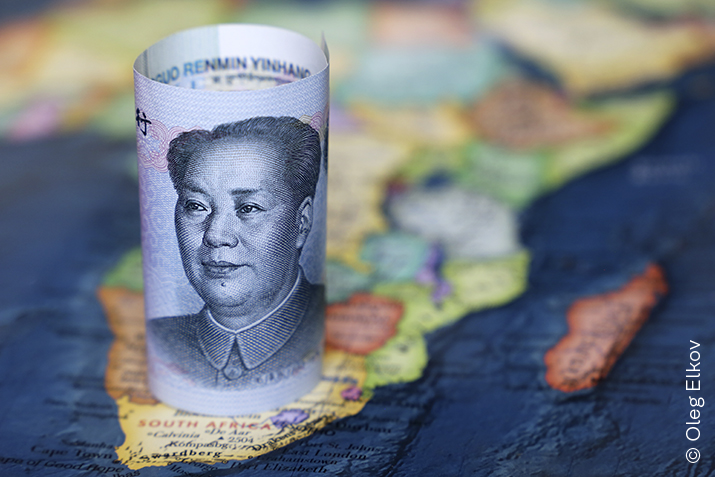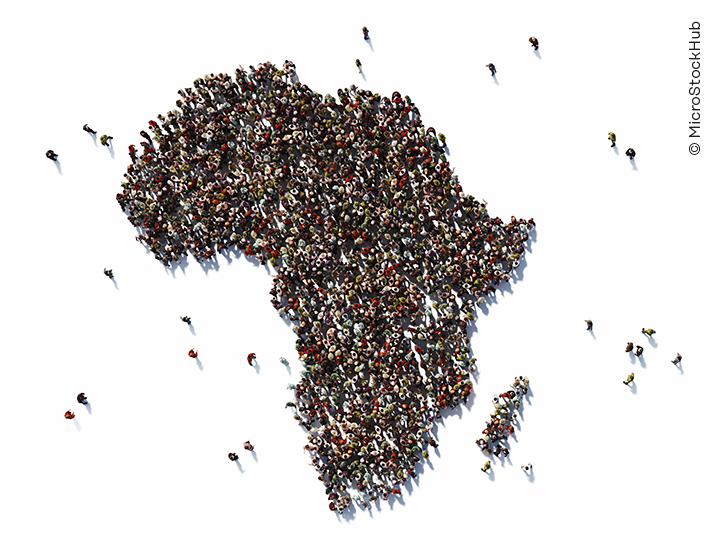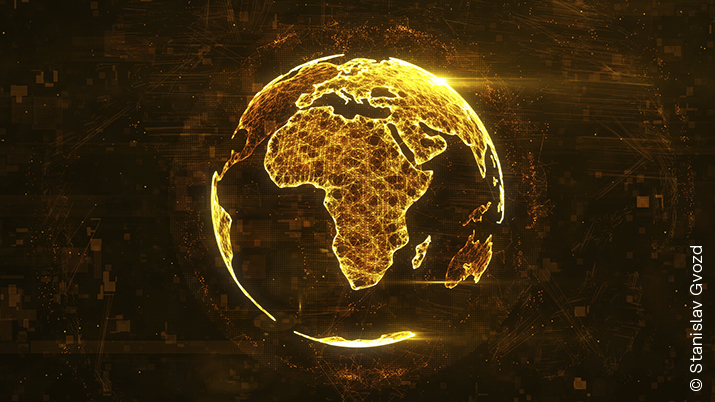Even though the African continent has been characterized by a long, and sometimes dramatic, history of forced colonization processes (which took place between 1833 and 1914) and tormented struggles for the conquest of national identities (which ended during the "cold war"), never as in this period has it been the object of attention (not without a certain interest) of the major players in contemporary politics. Simply consider the visits over the last 12 months by Emmanuel Macron, Olaf Scholz, Sergei Lavrov, Qin Gang (new Chinese Foreign Minister) and Anthony Blinken, as well as Italian prime minister Giorgia Meloni, on whose trip to Algeria and Libya and Ethiopia we will return briefly at the end of the article.
Aside from the states of "old Europe" which are striving, with rather unimpressive results, to keep their presence alive, a presence which was built in the colonial era in decidedly less "globalized" conditions than at present (in the period mentioned above, the so-called "partition" of Africa was their exclusive privilege), today practically all the large and medium-sized world powers operate on this continent.
In particular, the presence of the People's Republic of China (PRC) is now largely consolidated. A presence destined to further strengthen over time, based on the consideration that the PRC, where one fifth of the total population lives and which has the second largest manufacturing sector in the world, owns only 7 percent of arable land and is known to be poor in raw materials and energy sources. Between China and the African continent is a complementarity, which translates for the latter into a welcome increase in available resources in the short-term but, in the long run into a position of increasingly marked dependence.
From a European point of view in particular, the above picture takes on even more worrying tones considering the fact that the Chinese example has quickly been adopted as a model by a series of other players, by no means secondary, such as Turkey, the Gulf States and India.
In contrast, the response from the Russian Federation is based on considerations pertaining almost exclusively to the political and military sphere and Russia is infiltrating by means of a different approach, which has been increasingly evident over the last few years. Through the provision, in favour of a series of semi-dictatorial regimes, of a few thousand paramilitary soldiers (the infamous Wagner militias), Moscow has managed to carve out a consistent level of influence over a substantial group of countries, offering them a much-appreciated asset, namely security from possible destabilizing attacks.
Starting from the north and moving down the map, the first of them is Tripolitania. Then come Mali, Burkina Faso, Sudan (currently in the throes of bloody clashes between the army and the paramilitaries which have cost the lives of hundreds of civilians, and which forced Western countries to hurriedly organize complex evacuation operations for their own citizens residing there), the Central African Republic, the Democratic Republic of Congo (DRC), Congo Brazzaville and finally Malawi.
In all the situations mentioned, the scheme adopted by the Kremlin is as simple as it is effective: full support, both military and economic, (which undoubtedly includes the well-known "wheat agreement" stipulated with Turkey) granted to the autocrats in power, in exchange for their "understanding" attitude in the voting at the UN General Assembly regarding the ongoing conflict with Ukraine.
With this in mind, some political analysts have come to wonder whether there is some form of preliminary agreement between China and Russia (obviously not disclosed externally) aimed at dividing up the rich "African loot", with Beijing pocketing the economic dividends and Moscow reaping the geo- strategic benefits.
Even if this hypothesis will most likely never be confirmed, it still appears undeniable how the strategies of these two great capitals are characterized, either because they are coordinated one with the other or spontaneously, by a clear anti-Western connotation.
The recognition of this objective threat prompted President Macron in March of this year to carry out an Africa tour in four countries (Gabon, Angola, Congo Brazzaville and the Democratic Republic of the Congo) to reaffirm the desire from Paris to continue to represent a solid point of reference on the continent. One must admit that the welcome given to him by the local authorities and populations was not exactly friendly. The lowest point was reached in Kinshasa, the capital of the DRC, where Macron was indeed greeted by a riot of blue-white-red flags, but with the colours arranged horizontally, as in the Russian flag.
Returning to the beginning of the article, a brief comment is also necessary on the trip made to Algeria and Libya by Prime Minister Meloni at the end of January and repeated in mid-April by the mission to Ethiopia, in order to brief the respective governments on the existence of the cooperation agreement, known as the “Mattei Plan”.
While more complete details are not yet known on its contents (these are to be disclosed during the Italy/Africa intergovernmental summit next October), it appears nonetheless that energy sources (gas and oil supplies) and the phenomenon of migration (in an attempt to curb the current major flows) have been established as the two central points. These issues are also top priority in Italy's political, economic and social agenda.
With clarification that the initiative could gradually be extended to other countries in the Mediterranean area, the final observation of our editorial, of a more general nature, is as follows. In order to attempt to stem the increasingly marked involvement on the "dark continent" of the dreaded "demokratura", primarily the Chinese and the Russians, before it becomes too late, it is vital that the European Union makes a decisive adjustment in its course of action with regard to African policy, shelving, or in any case reducing, the range of interventions of more or less non-repayable assistance and replacing them with relationships of qualified and responsible cooperation which should be stipulated on an equal basis.
In relation to this, it is also necessary to avoid imposing rules and principles on that continent in the future which, although valid in Europe, appear difficult to export elsewhere. Furthermore, there is the need, regarding African rulers, to put a definitive end to attitudes or public declarations of a paternalistic manner, a legacy of a past that has now disappeared. Moreover, even in the field of migration there are unsuspected areas of cooperation, if one reflects on the fact that a substantial part of the flows of people originating from the continent (approximately one third of the total) do not have Europe as their final destination but rather other African countries.
There is still time to spare, but it must not be wasted, if we wish to avoid that European representatives discover, at their expense, that the seats at the negotiating table with the local authorities in future African missions, which have so far been reserved for them, are now permanently occupied by the new protagonists of the international political scene and that, as happened to Macron, even the demonstrators take note and behave accordingly.
Reggente Marco Marsilli, Foundation President










